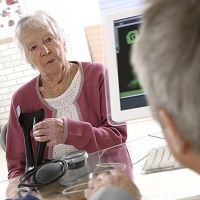Article
Rheumatoid Arthritis-Specific Education Programs Support Patients
Author(s):
Lifestyles and emotions of rheumatoid arthritis patients are positively impacted after participation in educational and support groups, according to research from the Hospital for Special Surgery.

Education and support groups for rheumatoid arthritis (RA) patients have positive impacts on their lives, according to research presented at the American College of Rheumatology annual meeting in Boston in November.
Researchers from the Hospital for Special Surgery (HSS) in New York City collected data from RA patients using a 20 item questionnaire using multiple choice and open ended questions. There were 127 questionnaires completed which investigated 3 topics: “Managing RA,” “Connecting with Others with RA,” and “Coping with the Emotional Impact of RA.”
Almost all of the participants who completed the survey were female (93 percent) and had a mean age of 49 years (though ages ranged from 25 to 85 years). A majority of participants (92 percent) attended college.
The monthly program the patients were involved in is led by a clinical social worker and a rheumatology nurse manager and is aimed at enhancing emotional coping techniques and disease management strategies. The group is open to anyone diagnosed with RA in the past 2 years and is free.
“The Early RA Support and Education program, a part of the Early Arthritis Initiative at HSS, addresses the unique psycho-educational needs of people recently diagnosed with RA,” Adena Batterman, LCSW, manager of RA Support and Education Programs at HSS, said in a press release. “When developing the program, it was important that the patients’ voice and perspective were being considered in how we identified and addressed the specific needs of participants. To ensure this, we obtained patient feedback from many sources, which included focus groups.”
In the “Managing RA” category, 90 percent of participants indicated they could make informed choices about their RA because of the program. An additional 84 percent from the “Managing RA” category noted they felt prepared to discuss RA treatment with their clinician.
From the “Connecting with Others” group, 77 percent of participants specified they felt more hopeful about their RA by speaking with other group members. A majority of the patients (89 percent) stated sharing information and feelings in the sessions helped them cope with their RA.
In the “Emotional Impact” category, about three fourths (79 percent) of patients said they felt more confident in managing their RA after participating in the group. RA was less disruptive in their daily lives than it had been previously for 61 percent of patients.
“A diagnosis of RA is overwhelming and extremely stressful, so emotional and educational support are very important,” Ted Fields, MD, clinical director, Early Arthritis Initiative, Inflammatory Arthritis Center at HSS, continued. “Meeting others with the same illness gives participants a sense of community and has a positive psychological impact. We also know that educated patients are more likely to stay on their medications, which is important in controlling RA.”
Batterman added that although future work is needed to explore other factors that disrupt daily life with RA, and how to better combat this outcome, the researchers believe their evaluation methods are effective for other disease specific support and education programs.




